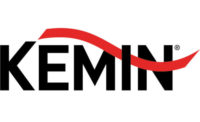Kemin Food Technologies: Sustainable Solutions
Kemin Food Technologies shares sustainability video, its story

Kemin Industries has released a new video, “The Journey to Sustainability,” which highlights the importance of sustainability, particularly for the Kemin Food Technologies – Americas business unit, and the ways Kemin practices and measures company efforts.
Sustainable practices are becoming increasingly more important in the world of corporate social responsibility, and consumers are demanding sustainable products, as well. A consumer trend study by NMI shows that when consumers know a company is mindful of its environmental impact, they are more likely to try the company’s product, purchase it regularly and use social media to spread the word about that company.1
“The mission of Kemin is to sustainably transform the quality of life every day for 80% of the world with our products and services,” said Dr. Chris Nelson, President and CEO, Kemin Industries. “Sustainability is at the core of our company, and this video conveys that commitment to our customers and the food and beverage manufacturing industry by detailing ways our team implements and ensures sustainability of our products. Kemin is dedicated to protecting the future of our planet and providing opportunities for our employees and our customers to support and contribute to sustainability efforts.”
The sustainability video also illustrates how Kemin incorporates the “Triple Bottom Line” approach into its business model. The approach encompasses three major concepts of an organization’s impact – financial, environmental and social. By putting value in environmental and social outcomes as it does its financial ones, a company can prepare for tomorrow through sustainable action today.
Kemin uses the lenses of Healthy People, Healthy Planet and Healthy Business to put the future in focus and transform lives. Kemin Food Technologies – Americas defines them as follows:
● Sustainable People: Encompasses the thousands of people who work at Kemin, as well as the lives of those in local communities Kemin supports through charitable giving and volunteerism
● Sustainable Business: Focuses on creating value with financial sustainability by providing customers with products and services that help drive their transformation toward sustainability
● Sustainable Planet: Involves major areas of environmental impact that Kemin can measure and improve, like its carbon footprint and water usage, making it fundamental to the other two lenses
“At Kemin, sustainability is a top priority, and we strive to have a sustainable culture and overall positive impact on our environment,” said Marc Scantlin, President, Kemin Food Technologies – Americas. “By integrating sustainability across our business, we are better positioned to realize new growth opportunities, lower risks and costs, discover innovative solutions, improve operational efficiency and strengthen our brand, as well as attract and keep the top talent that moves us forward.”
Watch the “Journey to Sustainability” video and learn more about Kemin’s sustainability efforts and how Kemin Food Technologies – Americas is incorporating them into its work.
About Kemin Industries
Kemin Industries (www.kemin.com) is a global ingredient manufacturer that strives to sustainably transform the quality of life every day for 80 percent of the world with its products and services. The company supplies over 500 specialty ingredients for human and animal health and nutrition, pet food, aquaculture, nutraceutical, food technologies, crop technologies, textile, biofuels and animal vaccine industries.
For over half a century, Kemin has been dedicated to using applied science to address industry challenges and offer product solutions to customers in more than 120 countries. Kemin provides ingredients to feed a growing population with its commitment to the quality, safety and efficacy of food, feed and health-related products.
Established in 1961, Kemin is a privately held, family-owned-and-operated company with more than 2,800 global employees and operations in 90 countries, including manufacturing facilities in Belgium, Brazil, China, India, Italy, Russia, San Marino, Singapore, South Africa and the United States.
Looking for a reprint of this article?
From high-res PDFs to custom plaques, order your copy today!






